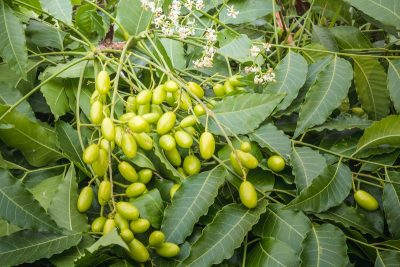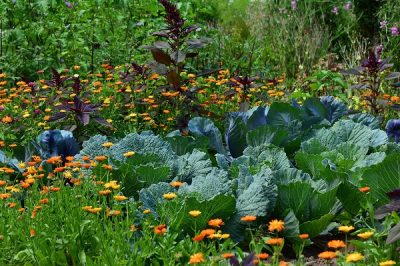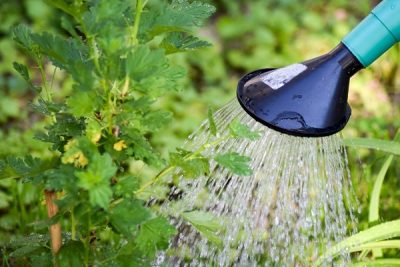 Green gardening is where it’s at for so many these days. More and more people are recognizing its importance both for their health and that of our environment. There are so many ways to replace chemical-based fertilizers, herbicides, or pesticides, these days, from relying on old methods to innovations to ensure a healthy, organic, eco-friendly garden. See the list of natural alternatives for controlling pests listed below. Starting with organic seeds is a great beginning. Container gardening is a wonderful way to get started with green gardening or for those who simply don’t have a lot of land. Vertical gardening is becoming more popular, encompassing a variety of configurations and containers stacked on top of each other that conserve space and use less water. We list many DIY projects to help and inspire home and organic gardeners on our page entitled ‘Growing Your Own Food’.
Green gardening is where it’s at for so many these days. More and more people are recognizing its importance both for their health and that of our environment. There are so many ways to replace chemical-based fertilizers, herbicides, or pesticides, these days, from relying on old methods to innovations to ensure a healthy, organic, eco-friendly garden. See the list of natural alternatives for controlling pests listed below. Starting with organic seeds is a great beginning. Container gardening is a wonderful way to get started with green gardening or for those who simply don’t have a lot of land. Vertical gardening is becoming more popular, encompassing a variety of configurations and containers stacked on top of each other that conserve space and use less water. We list many DIY projects to help and inspire home and organic gardeners on our page entitled ‘Growing Your Own Food’.
Composting is the basis of good, nutrient-rich soil on which to base a garden, especially if you know exactly what went into making that compost and controlled it well using kitchen scraps and lawn clippings, leaves, and other natural fill.
As watering is key to any garden, this aspect is also a great one to control. Using water captured in your rain barrel is a great step. Visit our page on Sourcing Water for various links to capturing water for the garden. Watering gardens and lawns during the coolest part of the day is conducive to water seeping into the ground before it evaporates. You can also design a Rain Garden that will filter and direct rainwater from rooftop water spouts or paved areas to where it can provide moisture for your garden.
Planting trees is always a good thing and helps anchor the soil, and provide shade and a home for wildlife.
Using an old-fashioned hand-pushed mower is welcome, and failing that, an electric mower is preferable to gas-powered mowers which are soon to be banned in many communities anyway. Replacing the amount of grass on your property with plants, shrubs, trees, and food sources is becoming a welcome trend and will certainly help green gardening.
A Natural Weed Killer can be made using one gallon of white vinegar, one cup of salt, and one tablespoon of liquid dish soap. Other methods to replace chemical herbicides include using boiling water and using heat with a flame-weeder tool.
Natural alternatives for controlling/repelling pests:
Lavender: Bed Bugs, Mosquitos, Chiggers, Ticks, Fleas, Mosquitoes, Flies, Moths
Basil: Flies, Mosquitos
Eucalyptus: Flies, Roaches, Spiders, Spider Mites, Ants, Lice
Citronella: Mosquitoes, Flies, Ants
Cedarwood: Moths, Termites, Fleas, Ants, Cockroaches, Mosquitoes
Sandalwood: Aphids, Mosquitos
Peppermint: Ants, Aphids, Caterpillars, Spiders, Spider Mites, Beetles
Clove Oil: Lice, Termites, Mosquitoes, Ants, Wasps, Moths and their larvae, Flies, Fleas, Earwigs, Silverfish, Mites, Aphids, Cockroaches
Thyme: Beetles, Chiggers, Cabbage loopers, Whiteflies, Tomato Hornworms, Corn Earworms
Lemongrass: Ticks, Mosquitos, Chiggers, Fleas, Cockroaches, Bedbugs
Patchouli: Gnats, Snails, Bedbugs, Mosquitos, Moths, Flies, Ants, Fleas
Cinnamon: Termites, Rats, Mice, Squirrels, Raccoons, Snakes, Moles, Rabbits, Weasels
White Fir: Aphids, Slugs, Snails
Orange Peel Sprays: Slugs, Aphids, Ants, Whiteflies, Fruit Flies
Neem: Spider Mites, Aphids, Beetle Larvae, Caterpillars, Lace bugs, Leafhoppers, Leafminers, Mealybugs, Thrips, Whiteflies
Supernutritious: How to Make Homemade Weed Killer
EcoSnippets: Homemade Garlic-Mint Garden Insect Spray That Really Works…
Inceptive Minds: Making eco-friendly insecticide from discarded aloe peel
TreeHugger: Why Some Bees Are Endangered and What We Can Do to Help
Planet Natural: Neem Oil for Plants: How and When to Use It on Plants

GardenBeds: 7 Ways Neem Oil Will Make Your Plants Thrive
GardenBeds: 8 Organic Neem Oil Uses for Garden
Gardening Know-How: Eco-Friendly Insect Spray: Using Natural Pest Control Sprays In The Garden
EcoSnippets: How To Make An All-Purpose Organic Pesticide From Vegetables…
Rural Sprout: 8 Natural Ways To Stop Slugs & Snails Destroying Your Plants
EcoSnippets: The Patent That Could Destroy Monsanto And Change The World… It involves using fungi as a pesticide.

Habersizinle: Baking soda is a gardener’s best friend: Here are 13 clever uses in the garden
Climate Crisis Unleashes Pesticide Contamination from Thawing Permafrost, Elevating Global Emergency
Happy Sprout: Eco-friendly gardening tips for your green garden

One Home: Green Gardening Tips: A Haven for You and Nature
EcoSnippets: 10 Intensive Gardening Methods That Really Work To Maximize Available Space…
EcoSnippets: Straw Bale Gardening 101 – How To Grow Food With Less Work…
Mother Earth Living: Sustainable Gardening: 5 Green Gardening Tips
Good Housekeeping: How to Start an Organic Garden in 9 Easy Steps
Gardener’s Path: Organic Gardening

All About Gardening: 11 Organic Gardening Tips to Grow an Incredible Organic Garden
EcoSnippets: You’re Eating Microplastics In Ways You Don’t Even Realize
Your Home and Garden: Your Beginner’s Guide to Eco-friendly Gardening at Home

EcoSnippets: Living Fences – How To Make A Living Fence For Your Garden…